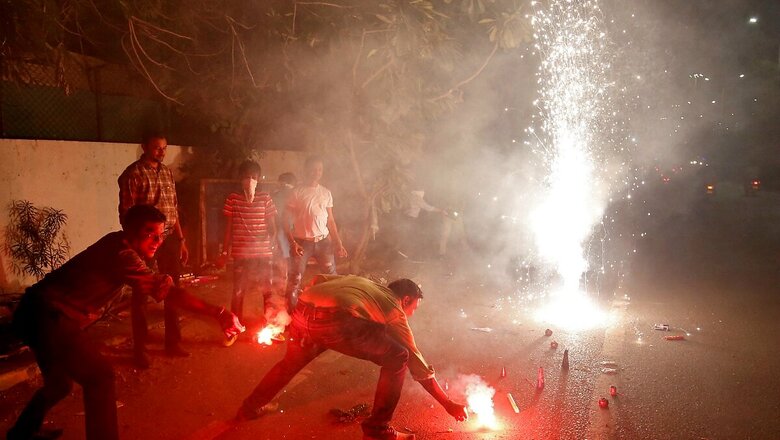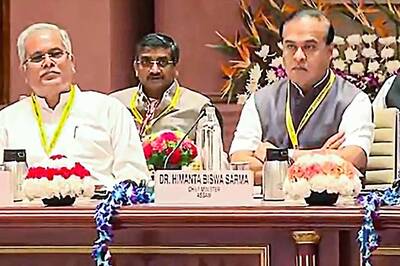
views
Amid looming fear of rising Covid-19 cases, there is an eerie silence in Assam’s only firework industry in the Barpeta district this Diwali. Despite being ‘Green’, the demand for firecrackers from the district has been abysmally low.
“We have started work just a week back, retailers have not placed any order and the traditional market outside Assam has shrunk alarmingly. Few orders that we have are from personal customers. Bulk orders and retail orders have evaporated due to the pandemic crisis. The business which normally peaks around this time of the year is only 10% of the usual” said Gopjit Pathak owner of Barpeta Atibaji Xilpa Sammanay Samiti. Usually, the annual turnover is more than 1.5 crore, he added.
One of the salient features of ‘thubri’ (flower pots/jugmug) made in the Barpeta firework industry that each cracker is made manually and one can predict the time it would burn for. A Barpeta thubri rises to a maximum height of 40 feet which explains the great demand for this item.
“We use products that have medicinal value in our firecrackers. Sulphur is known for its anti-itching qualities, the Potassium Nitrate is from cow urine, the carbon is from wood charcoal and for the sparkle we use the alumina dust from the lead machine. All these are then hand pressed into earthen pots on which we do not use any aluminium wraps. Barium Nitrate is harmful as it creates a blanket of white smog, our crackers do not pollute and are biodegradable. We have been green much before the National Green Tribunal raised their concern,” said Gopjit Pathak.
Pathak, who inherited the family trade from his grandfather, credits a ‘firework bible’ for the business. “My grandfather says his friend Lakhiram Nabis got him this book from Bangladesh, in which a few ‘magic’ firework tricks were written in Bengali, along with the methods to make the explosives. This became my grandfather’s bible for success,” he said.
This indigenous firework industry provides employment to more than 600 employees. During the lockdown, most of these workers moved to construction sites, however, now that the restrictions have been lifted most of them have returned.
“Sulphur in Rajasthan costs Rs 30 a kilogram and Potassium comes for Rs 70. However, we need to purchase the same from Kolkata where Sulphur per kilogram costs Rs 100 and Potassium Rs 130. If we need to bring it from Rajasthan we need to bring a truck load which is 10 ton. We do not have such cash, nor there are subsidies from the government,” said Gopjit.
Barpeta had a chance to compete with fireworks giants like Sivakashi, unfortunately, Gopjit could not gather the required ‘no objection certificates’ to move ahead with the project and he holds the administration accountable for this.
“The Department of Industry and Commerce had earlier deferred three dates for the inauguration of the Atisbaji Village (firework village) at Ganak Kuchi. The seven crore project which was sanctioned by the Assam Industrial and Infrastructure Development Corporation in 2012 got completed in 2016, but is yet to be fully commissioned,” Gopjit said.
Barpeta industry has been a pioneer in collaborating with the film industry of the state to provide special effects that involve explosions and blasts. Also, marriages in Bhutan and Bangladesh have ordered crackers and fireworks from Barpeta.
According to Gopjit, ITC also offered a Rs 500 crore shareholding in the traditional firework industry some eight years back. The businessman turned down the offer saying that commercialization would mean losing on the ethnic texture of the industry.
Read all the Latest News, Breaking News and Coronavirus News here



















Comments
0 comment